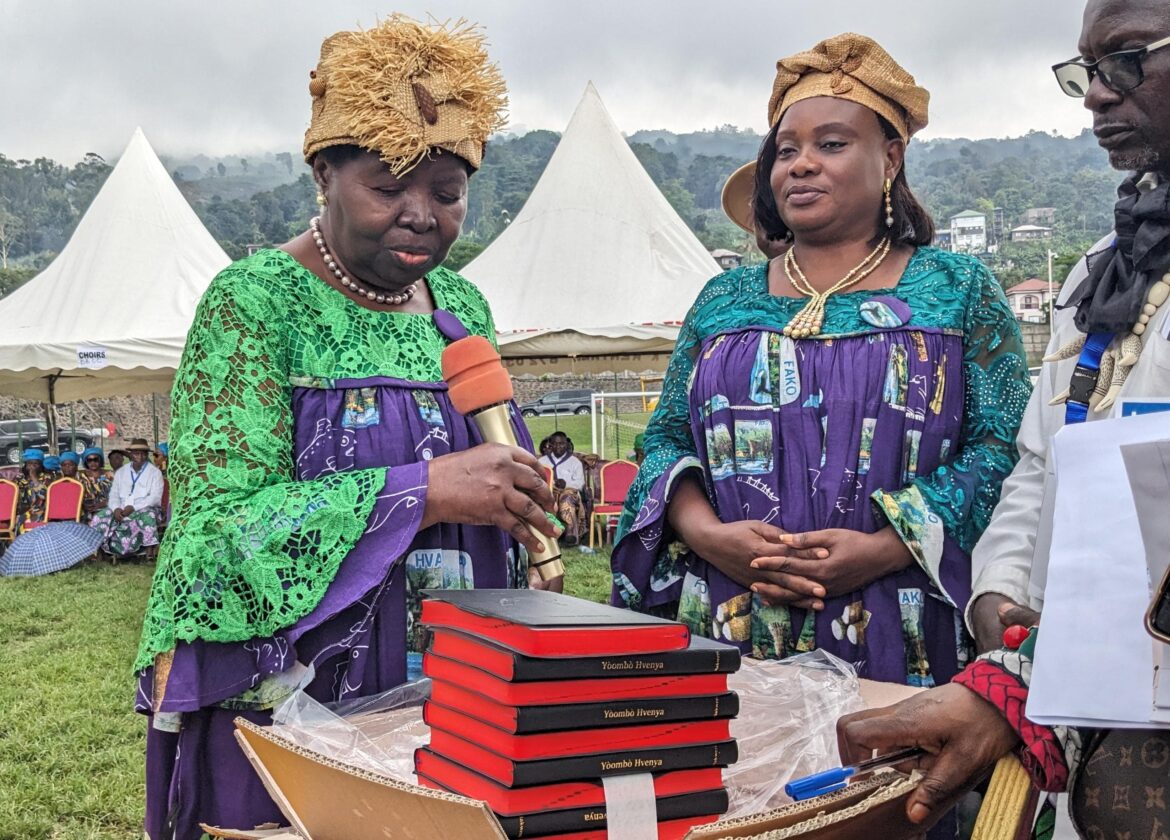By Hope Nda
Elites of the Bakweri tribe in the Southwest Region have successfully translated and launched the New Testament Bible in their mother tongue, Mokpe—one of the country’s over 250 languages. They believe this will preserve their language, which is being threatened by globalisation, and foster their people’s understanding of the Gospel.
Baptist pastor, Reverend Genty Ndeley, was inspired during a visit, some years back, to a church in Lolodorf, about 100 miles from Yaounde, where saw how worshippers used their native dialect throughout the service. Seeing how deeply people connected with the message, he decided to also prioritise his language, Mokpe, in worship.
Determined to make the Bible accessible in his native tongue, he joined forces with other language enthusiasts under the Bakweri Language and Literacy Association, BALALIA, to translate the New Testament into Mokpe. The project took 12 years to complete.
On March 29, 2025, BALALIA officially launched the 667-page Mokpe New Testament Bible in Buea, with dozens of Bakweri elites, pastors and natives in attendance.
Among the attendees was CDC General Manager, Frankline Ngoni Njie; Erstwhile UB Vice Chancellor and former Minister, Prof Dorothy Limunga Njeuma; former GCE Board Registrar, Dr Humphrey Ekema Monono; university Don, Prof Ernest Molua, among several others.
The translated New Testament, known in Mokpe as Yoombo Hvenya, was officially unveiled by Prof Njeuma, who applauded the initiative for its prospect of preserving the Mokpe language.
The Bakweri Language and Literacy Association is using Bible translation as just one approach to revitalising Mokpe, a language that, like many indigenous languages in Cameroon, faces the threat of decline due to globalisation.
Dr. Humphrey Ekema Monono, BALALIA’s Chairman, noted that they also want to bridge the literacy gap between older and younger generations of Bakweri people.
“The book is only to reinforce the understanding of God’s Word, especially for those older than 70, who did not have the opportunity to go to school,” he said.
He added that the next challenge is to translate the Old Testament of the Bible into Mokpe and extend the translation to other dialects spoken in Fako Division, including Moungo, Wovia, Bomboko and Isuu.
Connecting With Faith In The Native Tongue
Rev. Ndeley, who is the General Coordinator of the Bible translation project, believes that people resonate more with religious messages when they hear them in their own language.

Reverend Genty Ndeley
He saw this firsthand while serving in Bova and Bonakanda—Bakweri villages where he chose to preach exclusively in Mokpe, rather than in Pidgin English.
“And they [Christians] told our field pastor, ‘Please don’t let this pastor out of this place because we now understand the Word in our language. We hear these wonderful things of God read and preached to us in our language. And that is our pride,’” he recalled.
Before the translation, Pastors ministering in interior villages in Bakweriland had to read the Bible in English and then interpret it to their congregations in Pidgin or Mokpe.
Now, they can read directly from the Mokpe New Testament, making the gospel more accessible to people who may not properly understand English.
Bible Translation & Language Preservation In Cameroon
Bible translations are on the rise in Cameroon, as communities seek to preserve their languages—many of which are facing extinction.
The Cameroon Association for Bible Translation, CABTAL, has been at the forefront of Bible translation and literacy efforts. Over its 35 years of existence, CABTAL has worked with 100 communities to translate scriptures and other books into native languages.
The association also worked closely with BALALIA to translate the New Testament into the Mokpe language.
“Our ambition is to see individuals and communities transformed by God’s Word in their language. We also want to see them use their language for sustainable development,” said Dr. Keyeh Emmanuel, CABTAL’s General Director.

